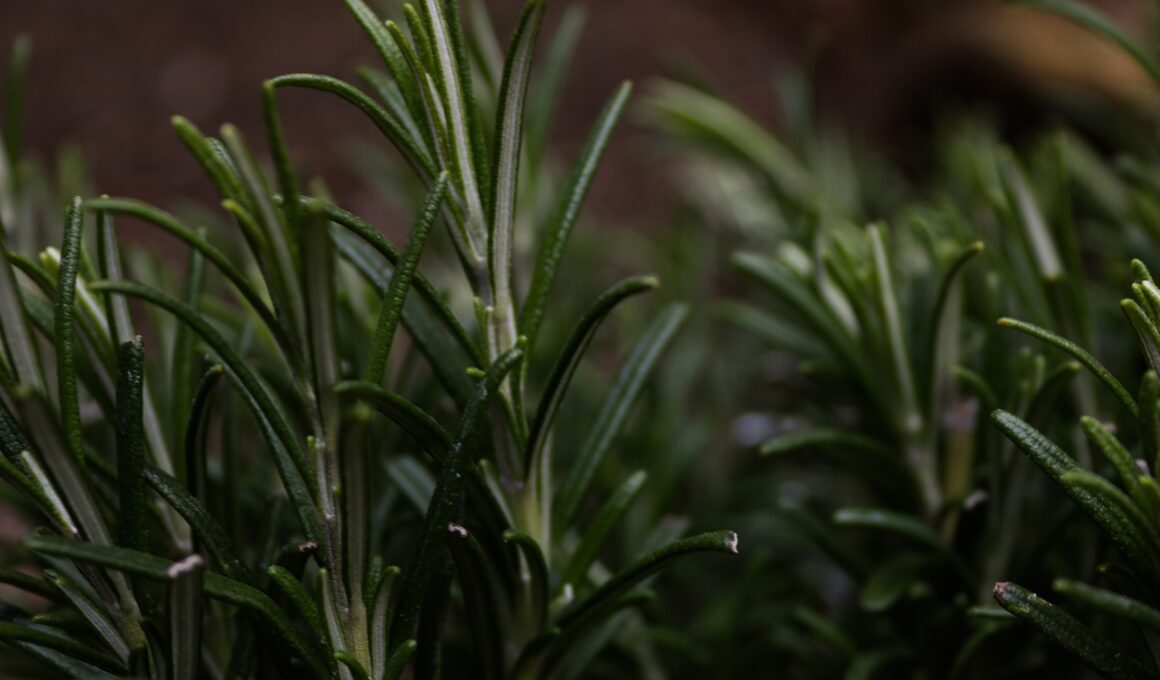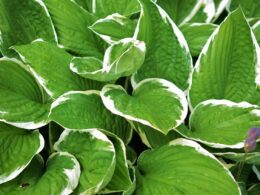Are you worried about the survival of your rosemary and thyme plants during the winter months? It’s a common concern for many gardeners, especially those who live in areas with harsh winters.
But fear not, with a little bit of knowledge and preparation, you can give your herbs the best chance of making it through the cold season.
First, it’s important to understand the hardiness of rosemary and thyme. Both plants are native to the Mediterranean region, which means they thrive in warm, sunny climates. However, they can still survive in cooler temperatures if given the right conditions.
In this article, we’ll explore the factors that affect their survival, as well as tips for caring for them during the winter months. So, let’s dive in and learn how to help your rosemary and thyme thrive, no matter the weather.
Understanding the Hardiness of Rosemary and Thyme
Discovering whether these herbs can survive the harsh winter months is crucial for any gardener who wants to maintain a flourishing herb garden. Both rosemary and thyme are hardy herbs that can withstand the cold, but they do require certain growing conditions to thrive.
The growing season for these herbs is from spring to fall, and they require well-drained soil that is not too moist or too dry. Rosemary and thyme prefer soil that is slightly alkaline and well-drained. They do not like soil that is too moist or too dry, so it is important to water them regularly but not excessively.
Rosemary and thyme are both Mediterranean herbs that are accustomed to hot, dry summers and mild winters. In areas where the winters are severe, it is recommended to plant them in containers that can be moved indoors during the colder months. If you live in an area with mild winters, you can plant them directly in the ground, but make sure to choose a spot that gets plenty of sunlight and has well-drained soil.
If you are planting them in containers, make sure the containers have drainage holes to prevent water from pooling at the bottom. With proper care and attention, rosemary and thyme can not only survive but thrive during the winter months.
Factors Affecting the Survival of Rosemary and Thyme
You’ll want to understand what factors impact the ability of these herbs to make it through the colder months. The first factor that can affect their survival is climate conditions. Rosemary and thyme are native to the Mediterranean region, which means they prefer warm and dry weather. If the temperature drops below 20°F, they may not survive. However, if the winter is mild and the herbs are well-established, they may be able to tolerate colder temperatures.
Another factor to consider is soil quality. These herbs prefer well-draining soil that isn’t too wet or too dry. If the soil is too wet, the roots can rot, and if the soil is too dry, the herbs may not get enough water. It’s important to make sure the soil is healthy and well-draining before planting the herbs. Adding compost or other organic matter can help improve soil quality.
To help ensure the survival of your rosemary and thyme, it’s also important to practice good pest control and pruning techniques. Pests like spider mites and whiteflies can damage the herbs and make them more susceptible to disease. Regularly inspecting the plants and removing any pests can help prevent damage. Additionally, pruning the herbs can help promote healthy growth and prevent them from becoming too woody.
By taking these factors into consideration and implementing proper care, you can help your rosemary and thyme survive the winter months. With the right climate conditions, soil quality, pest control, and pruning techniques, these herbs can thrive and provide fresh flavor all year round.
Winter Care for Rosemary and Thyme
If you’re like most herb enthusiasts, keeping your fragrant green friends alive during the colder months is a challenge you’re willing to take on. Rosemary and thyme, in particular, need extra care during winter since they are Mediterranean herbs that thrive in warm, sunny climates. However, with the right winter care, you can successfully overwinter your rosemary and thyme plants.
One crucial aspect of winter care for rosemary and thyme is proper watering. During winter, these herbs require less water than during warmer months. Overwatering can lead to root rot, which can be fatal for the plant. On the other hand, underwatering can cause leaves to dry out and turn brown. The key is to find the right balance and water the plants only when the soil is dry to the touch. You can also mist the leaves with water to increase humidity levels.
Another important factor to consider is indoor lighting. Since rosemary and thyme are sun-loving plants, they need bright light to survive indoors during winter. If you don’t have a sunny window, you can provide supplemental lighting with grow lights. Place the plants under the lights for 12-16 hours a day, and make sure to keep the lights a few inches above the plants to prevent burning.
| Winter Care Tips for Rosemary and Thyme | |
|---|---|
| Water only when soil is dry to the touch | Avoid overwatering to prevent root rot |
| Mist the leaves with water to increase humidity levels | Underwatering can cause leaves to dry out and turn brown |
| Provide bright indoor lighting or use grow lights | Plants need 12-16 hours of light per day, keep lights a few inches above plants to prevent burning |
By following these winter care tips, you can help your rosemary and thyme plants survive the colder months. With proper watering and lighting, your herbs will continue to thrive and provide you with fresh, fragrant leaves all year round. So don’t let winter stop you from enjoying your favorite herbs!
Alternative Methods for Overwintering Rosemary and Thyme
To keep your beloved herbs healthy and thriving, there are alternative methods for overwintering that will help you create a cozy and warm environment for them to flourish in. If you don’t have a garden bed or outdoor space, don’t worry! You can still enjoy fresh rosemary and thyme all winter long with indoor gardening.
Here are some alternative methods for overwintering your herbs:
-
Grow them in containers: Plant your herbs in containers with drainage holes and place them near a sunny window. Make sure to water them regularly and use a high-quality potting mix.
-
Use grow lights: If you don’t have a sunny window, invest in some grow lights. These lights simulate natural sunlight and can be adjusted to provide the right amount of light for your herbs.
-
Keep them warm: Rosemary and thyme prefer warm temperatures, so keep them away from cold drafts and heating vents. You can also place a heat mat under their containers to provide extra warmth.
-
Provide adequate humidity: Indoor air can be dry, so mist your herbs regularly with a spray bottle or place a tray of water near their containers to increase humidity.
With these alternative methods for overwintering, you can enjoy fresh herbs all winter long without worrying about the cold temperatures outside. Indoor gardening is a great way to keep your herb garden thriving, no matter the season. So, get creative and experiment with different methods to find the best solution for your indoor herb garden.
Conclusion and Final Tips for Winter Herb Care
Don’t let the cold weather stop you from enjoying fresh herbs all year round. With indoor gardening, you can keep your container garden thriving and flavorful.
One way to keep your herbs alive during winter is to bring them inside and place them near a south-facing window. This will provide them with enough sunlight to grow, but be sure to rotate them every few days to ensure all sides get equal amounts of sun.
Another tip for winter herb care is to adjust their watering schedule. In winter, the air is drier, and plants tend to dry out faster. Check the soil regularly and water your herbs only when the top inch of soil is dry to the touch. Overwatering can lead to root rot, so it’s better to underwater than overwater.
Finally, consider investing in some grow lights. These lights mimic the sun’s spectrum and provide artificial sunlight for your herbs to grow. Place them over your plants for about 12-16 hours a day and watch them thrive.
With these final tips, you can keep your indoor garden vibrant and full of flavor all winter long.
Frequently Asked Questions
How often should I water my rosemary and thyme during the winter?
During the winter months, it’s important to adjust your watering frequency for your rosemary and thyme plants. These herbs are more susceptible to root rot during the colder months, so don’t overwater them. A good rule of thumb is to wait until the soil is dry to the touch before watering again.
This may mean watering less frequently than during the warmer months. But don’t worry, your rosemary and thyme can survive the winter if they’re properly cared for. Just make sure to keep them in a sunny location and adjust your watering routine accordingly.
With a little extra attention, your herbs will thrive and be ready to use in your cooking all year long.
Can I plant rosemary and thyme in the same pot?
Companion planting is a great way to maximize your garden space and create a harmonious environment for your plants. When it comes to container gardening, it’s important to choose plants that have similar needs and growing habits.
Rosemary and thyme make excellent companions in a pot because they both prefer well-draining soil and full sunlight. Plus, the fragrant herbs will complement each other and add a lovely aroma to your outdoor space. Just make sure to choose a container that is large enough for both plants to grow and thrive.
With proper care and attention, your rosemary and thyme will flourish together in their shared home.
Is it safe to use pesticides on my rosemary and thyme during the winter?
If you’re thinking of using pesticides on your rosemary and thyme during the winter, it’s important to consider whether they are indoor or outdoor plants.
If they are indoors, it’s best to avoid using pesticides altogether, as they can be harmful to both you and your plants.
If they are outdoors, you can use pesticides, but make sure to follow the instructions carefully and use them sparingly.
Keep in mind that rosemary and thyme are hardy plants that can survive the winter, but they may need some extra care and protection if the temperature drops too low.
So, before reaching for the pesticides, make sure to assess the situation and consider whether it’s really necessary.
What is the ideal temperature range for indoor overwintering of rosemary and thyme?
To successfully overwinter rosemary and thyme indoors, you need to ensure that they are kept in an ideal temperature range.
This range is between 60 and 70°F during the day and between 50 and 60°F at night.
Indoor growing provides the perfect environment for these herbs to thrive during the winter months.
By keeping them in a controlled environment, you can protect them from the harsh outdoor conditions and ensure their survival.
With consistent care and attention, your rosemary and thyme can continue to grow and provide you with fresh herbs for your cooking needs.
Can I use dried rosemary and thyme leaves during the winter instead of fresh?
If you’re wondering if you can use dried rosemary and thyme leaves during the winter instead of fresh, the answer is yes! While fresh herbs are always preferred, using dried herbs can be just as effective in adding flavor to your dishes.
Dried herbs have a more concentrated flavor and can be used in smaller amounts. Plus, they have a longer shelf life, making them a great option for winter cooking.
Get creative with your use of dried rosemary and thyme in winter recipes. Add them to stews, soups, and roasted vegetables for a warm and cozy flavor.
Dried herbs vs. fresh: which is better? It really depends on the dish and your personal preference, but don’t be afraid to experiment with both.
Conclusion
Congratulations, you now know how to ensure the survival of your beloved rosemary and thyme herbs through the winter!
Remember to consider the hardiness of your herbs and the factors that can affect their survival in colder temperatures.
To give your herbs the best chance of surviving the winter, make sure to provide proper winter care such as mulching and protecting them from harsh winds.
If you live in an area with extremely cold winters, you may want to consider alternative methods for overwintering your herbs such as bringing them indoors or using a cold frame.
With these tips and tricks in mind, you can enjoy fresh herbs all year round. Don’t forget to keep an eye on your herbs throughout the winter and adjust your care as needed.
Your rosemary and thyme plants will thank you for it!








